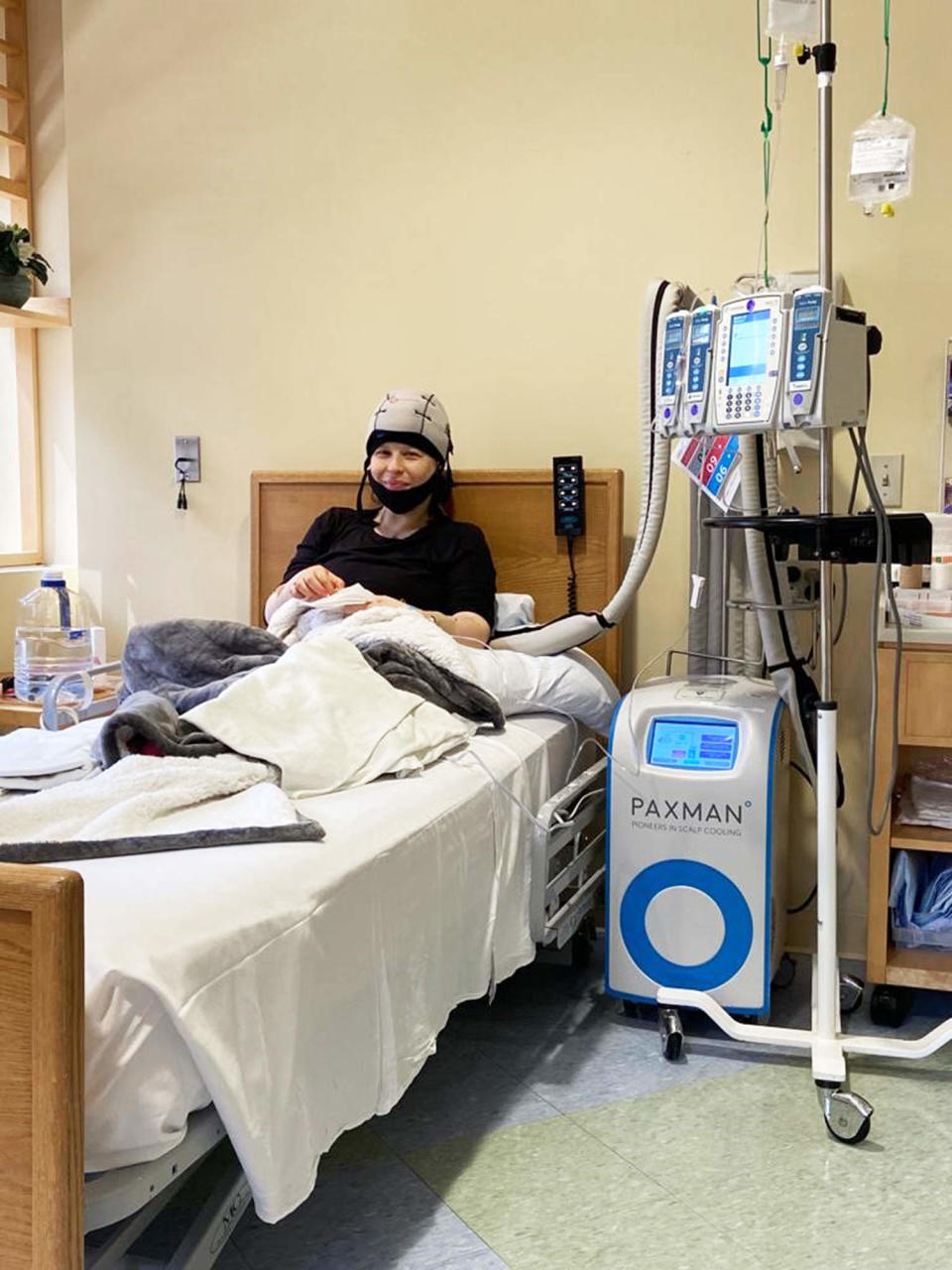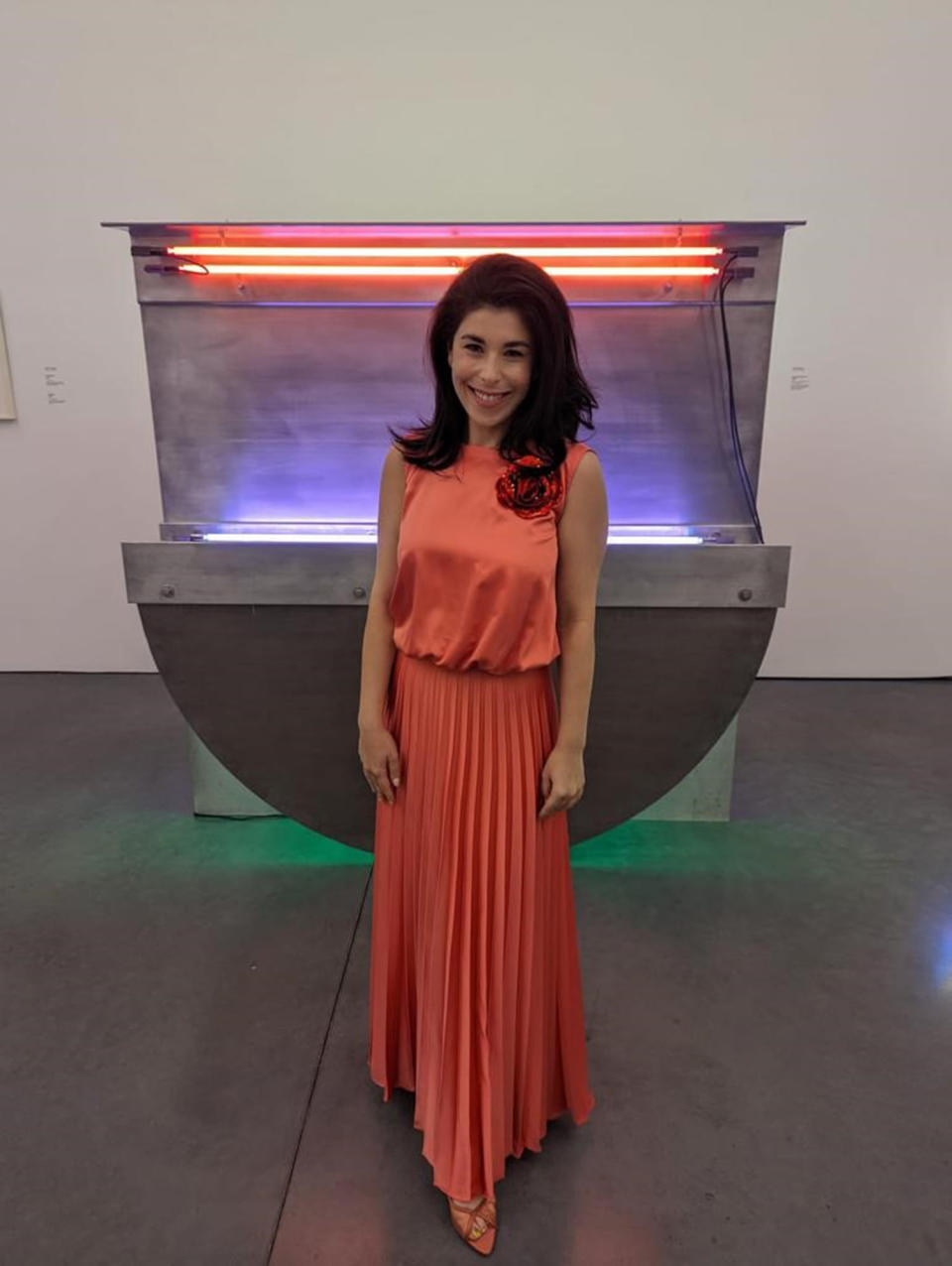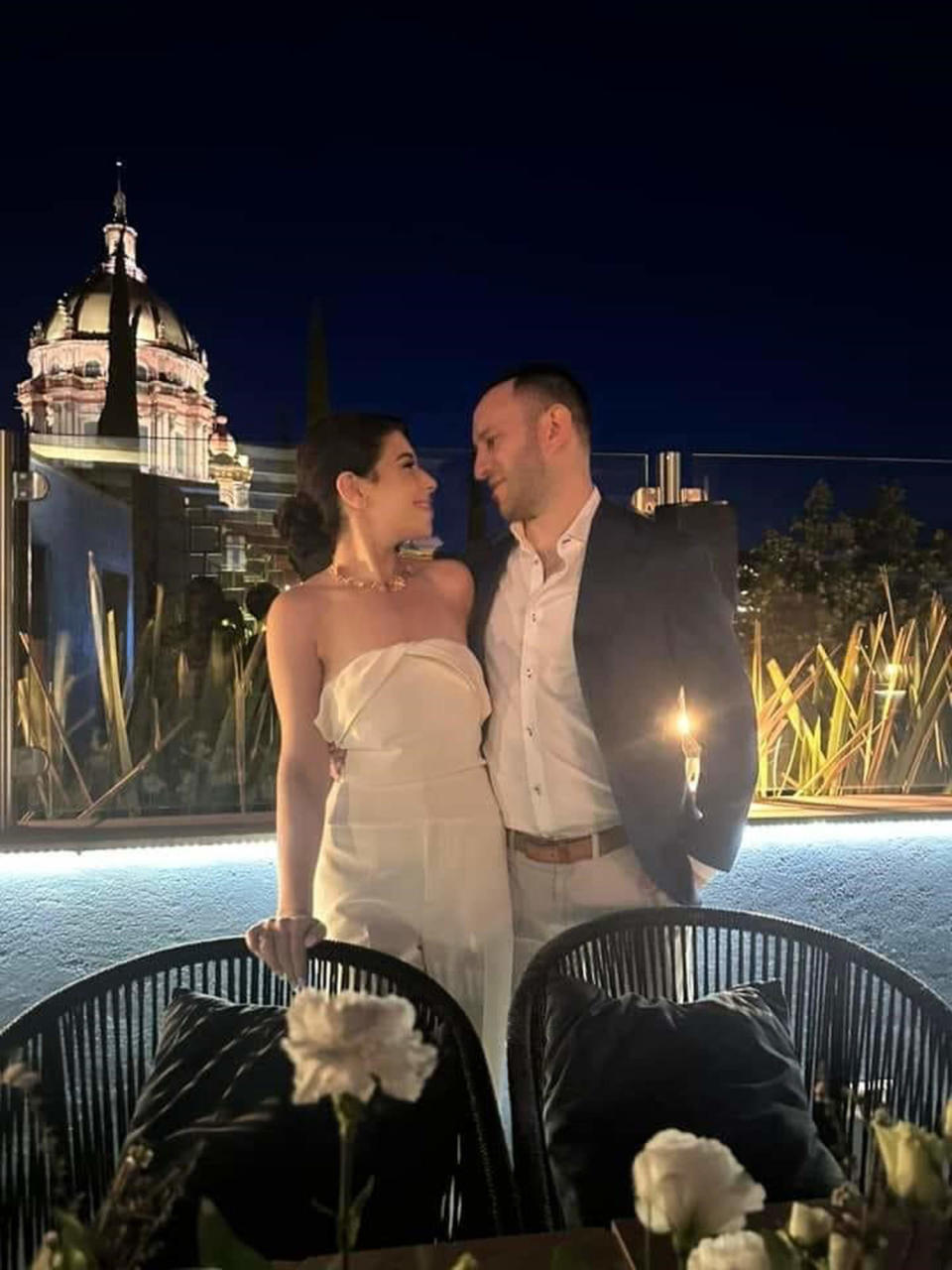Woman, 25, with ovarian cancer recalls symptoms that doctors dismissed: 'You’re fine'
One day, Emma Schlamm, then 25, felt an unusual pain in her left side. It didn’t feel like menstrual cramps, so she visited her doctor to learn more. A scan revealed a mass, which was later removed along with her ovary. While she felt concerned about the growth and the potential loss of her fertility, doctors told her it was a “borderline tumor” and that she didn’t need to worry.

“They really made it seem like, 'You’re fine. You’re really fine.' They told me to calm down when I would cry. They really tried to minimize the emotions,” the 29-year-old from Newport Beach, California, tells TODAY.com. “I felt incredibly dismissed.” A year later, though, a routine scan found another tumor, and she was then diagnosed with ovarian cancer. She felt shocked.
“Cancer was just not on my radar enough, and had it been, I think I would have pushed more,” she says. “There is no screening tool for ovarian cancer, but there are some things that could have helped my case.”
Unusual pain eventually leads to a diagnosis
When Schlamm first experienced pain on her left side, she visited several doctors before undergoing a scan that found a mass growing on her ovary. At first, doctors didn’t think it needed to be removed, but she felt concerned about it.
“I pushed and pushed and pushed because I was getting worried,” she says. “I (didn't) love the idea of anything that was growing in my body that wasn’t supposed to be there.”
Finally, they decided to perform surgery but faced a complication. The mass had attached itself to her ovary.
“There was no way to remove just the mass. They had to take out the whole ovary,” Schlamm says. “I was very upset about what the implications could be for fertility.”
About a year passed, and she was visiting her family in New York when she decided to visit a doctor for a checkup and get a scan. She couldn’t believe the results.
“They saw a tumor on the other ovary,” she says. “It was a full- fledged low-grade serous ovarian cancer,” meaning it started growing in the serous membrane of the ovary. It was also stage 2 and had spread to other parts of her pelvis.
The cancer diagnosis felt overwhelming to her and her family.
“There was just no way, at 25 years old, I was having cancer,” she recalls thinking. “I blacked out for most of the conversation. I don’t remember a lot of it. I’ve never heard my mom wail like that, the guttural kind of primal cry she let out.”
As Schlamm and her family grappled with their grief over the diagnosis, they visited three cancer centers for a treatment plan. She felt overwhelmed by the therapeutic options and possible outcomes.
“It basically took until someone at (Dana-Farber Cancer Institute) said to me, ‘If you were my daughter, this is what I would tell you to do,’ and that’s what I needed,” she says. “I needed that level of compassion to look at me like I could be their daughter and not just like any other patient."

Schlamm froze her eggs before starting cancer treatment. Doctors told her that chemotherapy only had a 15% chance of putting her into remission. Still, she decided to pursue it.
“I wanted to throw everything I possible could at it,” she says. “I was so desperate and willing, and there’s so few (treatment) options for this kind of cancer.”
Schlamm underwent six rounds of chemotherapy over 18 weeks and surgery to remove her remaining ovary. Now, she takes an aromatase inhibitor, a drug that lowers estrogen levels and is usually used to lower breast cancer risk in post-menopausal women.
While she responded well to treatments, she grappled with a lot of emotions due to her stage 2 cancer diagnosis.
“Dealing with menopause at 25 is not fun. It’s brutal,” she says. “A lot of my grief came from feeling like I lost my youth and vibrance and vitality because ... of not just the chemo but also the medication I am on and will be for the foreseeable future.”
The medication causes osteoporosis, and now, Schlamm worries about falling and hurting herself. Last year, her husband hugged her, and she cracked a rib.
“I do feel like I’m 100 years old inside this body, and it’s confusing because I want to live,” she says. “I’m 29 now and I want to feel 29.”
Low-grade serous ovarian carcinoma
According to the Ovarian Cancer Research Alliance, high-grade carcinomas are the most common types of ovarian cancers. Low-grade serous ovarian cancer often grows slower than other types of ovarian cancer, but it's usually not discovered in early stages, in part because it has few symptoms. There’s also no screening test available.
“Low-grade (serous ovarian cancer) is a subtype of ovarian cancer,” Nicole Andrews, chair of the board of directors of STAAR Ovarian Cancer Foundation, tells TODAY.com. “The studies are now being done in understanding this type of cancer because it’s rare.”
Andrews, who also had low-grade serous ovarian cancer, says this type of cancer most often occurs in younger women.
“We have all these 20 and 30 years old that get ovarian cancer, and it’s a big shock because they get it at later stages,” she says. “Their doctors didn’t even consider they could have ovarian cancer.”

Traditional cancer treatments don’t work as well on these types of cancer, according to University of Chicago Medicine, so many women with low-grade serous ovarian cancer experience a recurrence.
Like any cancer, catching it early improves outcomes. But it is difficult to detect ovarian cancer, in part because it doesn't cause many symptoms, and the few it does are similar to those of other conditions, such as fibroids or endometriosis. What's more, doctors sometimes dismiss patients’ symptoms, Andrews says.
However, if you experience any of the following symptoms, which could indicate ovarian cancer, talk to your doctor, Andrews says:
Bloating
Back pain
Irregular menstrual cycles
Indigestion
Feeling full quickly
Bowel changes
Pain during sex
Frequent urination
A recent poll of patients with low-grade serous ovarian cancer by STAAR Ovarian Cancer Foundation and pharmaceutical company Verastem Oncology found that few women knew the warning signs or about the cancer itself.
"Does more need to be done to educate? Absolutely," Andrews says.
The survey asked participants if their doctors dismissed their symptoms or concerns, and many said yes. Andrews adds that it's important for women experiencing symptoms of ovarian cancer to advocate for themselves to their doctors.

It took Andrews 18 months to be diagnosed. Her primary symptom was indigestion and doctors conducted a scan, but the results were normal. Eventually a sonogram revealed what doctors first thought was a “complex cyst.” It was the cancer, which was spreading.
“During the pandemic is when I began the bloating part, and I looked nine months pregnant,” she says. “I couldn’t make it across town — I live in Houston — without needing to go to the bathroom.”
While the pandemic shutdown delayed her testing, she ultimately was diagnosed with stage 3 low-grade serous ovarian cancer, which doctors treated with surgical removal of her uterus, ovaries and fallopian tubes plus chemotherapy and aromatase inhibitor.
The experience has taught Andrews how little many women know about their bodies and ovarian cancer.
“I have cancer and it’s likely to come back,” she says. “In the meantime, I’m sure going to go down fighting, no matter what, to make a difference.”
Making a difference
Schlamm and her husband enjoy visiting farmer’s markets, walking on the beach, trying new foods and traveling. While she sometimes struggles with her health, she focuses on enjoying life and educating others. Prior to joining STAAR as a board member, she worked in reproductive health education. She thinks that helped her with her experience.
“My career was literally working with young people to advocate for their health,” she says. “I thought to myself that I needed to take my own advice, like this is what I would want a 14-year-old girl in Fresno that I’m working with to do. I should do the same.”
Right now, there’s no evidence of disease, but Schlamm feels anxious each time she gets a scan.
“That’s the hardest part of all this, living with the fear of recurrence because the numbers are just so defeating,” she says. “I try to do what I can, stay active and healthy. It makes me feel like I have some control over my body.”
Schlamm hopes her story raises awareness of low-grade serous ovarian cancer.
“I hope that people see me (and) my age, and they’re like ‘This is what ovarian cancer can look like,’” she says. “This is not your grandmother’s ovarian cancer. Do not write it off. Do not dismiss it.”
This article was originally published on TODAY.com

